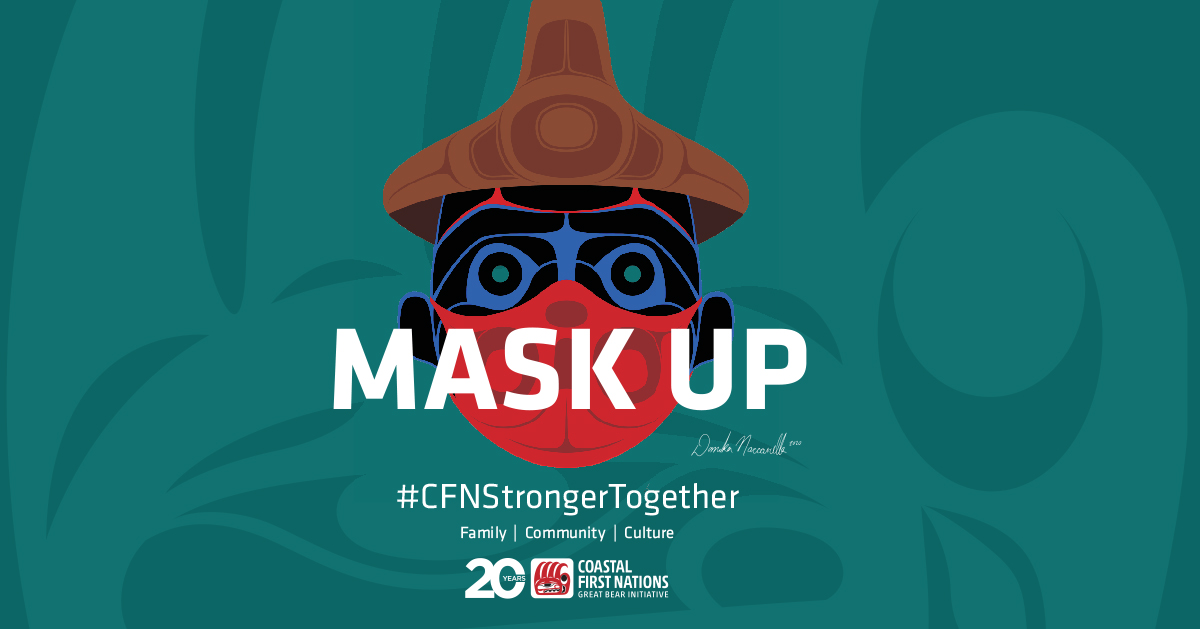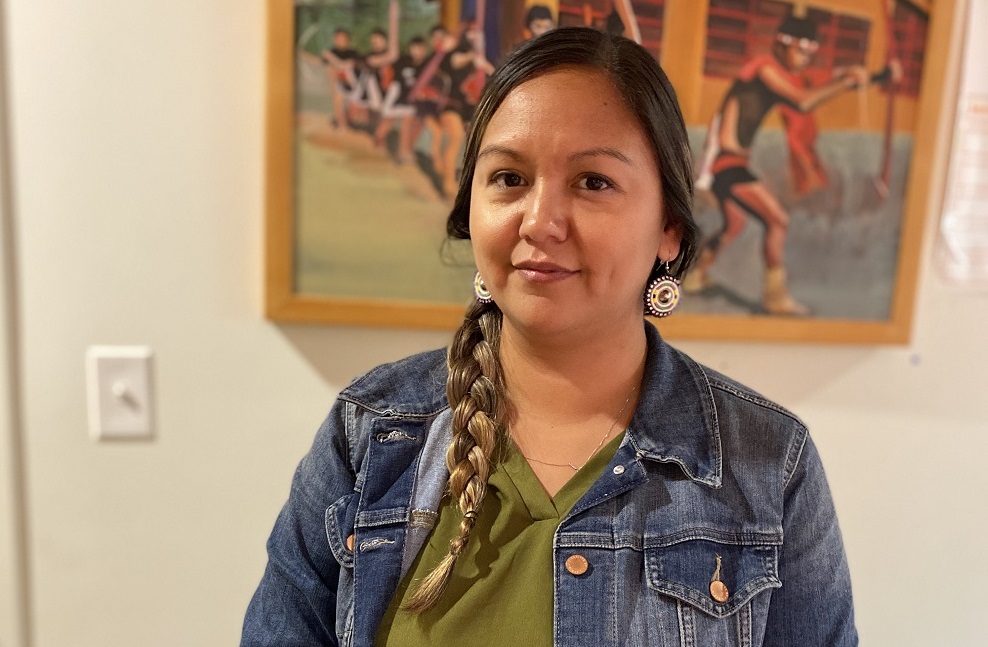Despite the surge in COVID-19 cases in early December in BC’s Northern Health Region, coastal First Nations’ health and emergency operations staff have done a remarkable job in keeping members safe by adapting public health measures to fit local and Indigenous needs of their communities. Three community health representatives shared their most effective measures for preventing outbreaks during the winter flu and virus season.
Kitasoo/Xai’xais Health Director Tiffany Mason says dealing promptly with travel restrictions to Klemtu on the Central Coast was one of the early and key measures put in place to contain the spread of the highly infectious coronavirus.
“Our leadership right off the bat worked with Port Hardy Save On Foods store and BC Ferries to make arrangements for orders to be placed online and shipped to Klemtu,” Mason reports. “When the shipment arrives, our fire department unloads it, sanitizes it and sorts it for pickup.”
“Our health department also recommended an alcohol ban because that was another main reason for travel. Putting that in place helped decrease the need for travel and the social activities that take place with alcohol,” she explains. “Those two steps seem to be pretty effective and the community seem to be reasonably happy with them.”
In Old Massett, food security planning was undertaken to reduce the amount of time people needed to spend in public spaces over the fall and winter. “We’ve really been working on encouraging food sovereignty within the Nation,” says Old Massett Village Councillor Goot-Ges Patrika McEvoy. “We distributed over 300 garden boxes to community members who wanted to grow their own food. That was our defence that we planned early on.”
Garden boxes containing soil and seeds were distributed to about 60 elders. Three community gardens were also planted, including one for single mothers on social assistance. “We supported people so that if they didn’t know how to plant potatoes, we had a youth worker come by to assist them with their gardens,” says McEvoy. “All of our elders grew their own potatoes, carrots and lettuce or whatever they wanted to grow.”
“We wanted to make sure that people had access to their own food so they’re not vulnerable having to access public spaces and putting themselves at risk,” she says. “Do you want to go into a store when it’s hunting season and people are not supposed to be on our island and everyone’s got a cold? Or do you want to go outside your house and you have your own potatoes right there?”
In Waglisla (Bella Bella), Autaqalis Denise Carpenter, Haitzaqv Emergency Operations Centre Director, says balancing self-isolation with people’s mental well-being was a key step in managing COVID-19.
“We did a community survey to ask the community for their input if they still wanted to have isolation in place. Eighty per cent said yes, they’d like some form of isolation,” says Carpenter. “We asked if they wanted 14 days, seven days or none. The majority asked for seven days because we were on 14 days and it was getting really hard on people’s mental wellness.”
Switching to a shorter self-isolation period turned out to be a positive measure for the Haitzaqv community. “People are struggling but there are not as many issues since moving to the seven-day isolation. It’s much better and I think people are starting to cope and adjust to what’s going on,” Carpenter says.
The Kitasoo/Xai’xais also took adaptive steps to lessen the mental health impact of self-isolation. “Right off the bat we went into a 14-day quarantine on return for out-of-community members. That had so many negative impacts on mental health that it just wasn’t working,” explains Mason. “So eventually we revised it to self-monitoring which means no visiting in another household, no one visits you, and no access to public services, except the health centre.”
Self-monitoring rather than quarantine made sense in a small community where residents were used to outdoor living. “In quarantine, folks were having to stay inside. Once that was altered, they were able to get outside and go for walks and get some fresh air,” she says, pointing out that members are asked stay in low traffic areas. “We have a few trails around the community so that makes that easy.”
Many coastal First Nations communities acted quickly to institute travel restrictions. All regular scheduled Pacific Coastal Air flights into Waglisla have been cancelled and only charter flights carrying mostly supplies and medical passengers are allowed. Visitors are restricted and essential workers require approval from the Emergency Operations Centre (EOC) for entry. “We really keep track of people who are coming or going,” says Carpenter.
Strict travel guidelines by the Kitasoo/Xai’xais Nation have also proven effective. Mason says all float plane and ferry arrivals are met by security. The Nation has an application process for entry and a travel advisory remains in effect that prevents non-band members from visiting.
“Our health centre is not equipped to care for community members with COVID-19, much less additional folks,” she says. “We have a fair amount of family who are members of our band who would like to come home and that’s been the most difficult. To say no to people who we view as community members has had its impact on us at the EOC. These are heart-wrenching decisions.”
In addition to preparing for a COVID-19 winter season, McEvoy says the Council of the Haida Nation, Old Massett Village Council and Skidegate Band Council worked together on four seasons planning to ensure members have access to food throughout the year. The Nation’s deer project pays hunters to help provide for the community. “We have a really large budget for deer hunting and we deliver canned deer meat right to our elders.”
There is some good news for Haitzaqv members despite the current public health climate. Carpenter says the local hospital reports the usual flood of cold and flu cases this time of year is down to almost none. “A lot of people are getting their flu shots, washing their hands regularly and wearing masks,” she says. “People are following the health measures and it’s showing.”
Coastal communities are distant from urban centres where cases are the highest, but Mason says the Kitasoo/Xai’xais EOC remains extremely cautious. “As isolated as we are, we do have travelers, and it’s not foolproof. We only have a small handful of elders in our community and our language and culture sits with them at this point.”
“Our measures may seem like they’re over the top at times, but when we look at the big picture, we’ll have everyone at our Christmas table next year.”


